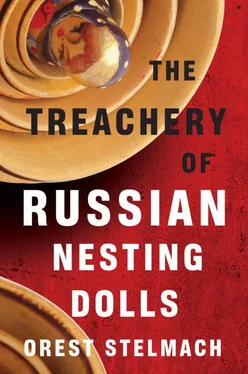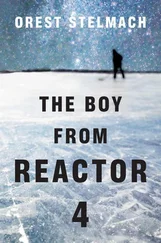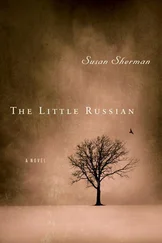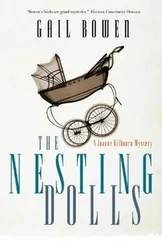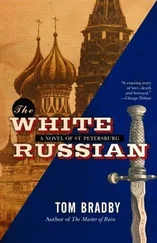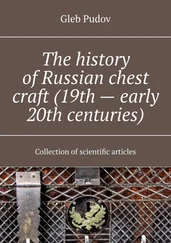“There’s no such thing as Ukraine and there are no such people as Ukrainians,” he said. “That’s just some senseless nonsense created by a few self-styled Nazis near Poland. This is great news. The investigator from America is actually Russian. I see why Simeonovich thinks so much of you. He may be a genius after all.”
If my brother, Marko, were here, he would have short-circuited, had a stroke, and fallen to his death. His demise would have been a function of not being able to decide whether to stab Romanov in the eye with his fork, or try to spoon it out and force it down his throat.
The waitress brought our food. Romanov spooned his yoghurt with zest and enthusiasm. I eyed my spoon with newfound fascination, and ate my wolfberries one at a time to make my meal last. I even calmed myself down enough to chew a few of them.
When we were done, Romanov insisted on paying the bill. I didn’t object. Instead I let him impress me with his gentlemanly ways.
Then I countered with my own insistence.
I demanded he take the American whore with the Russian bloodlines to the place she wanted to go more than any other.
I insisted he take me to the scene of the crime.
CHAPTER 7

We were buddies now, the dead girl’s charming father and I. Romanov actually had the nerve to open a gap in his elbow for my arm so we could walk to Iskra’s hotel like old friends or new lovers headed for a café in Prague. I took him up on his offer and walked arm-in-arm with him to further earn his trust to help my investigation. Never had I been happier to be snuggled close to a man who’d called me trash. Humility was an indispensible weapon in the arsenal that was going to lead me to the pretty boy who had eluded my chase. It was also one of the hardest weapons to deploy because when you needed it the most you wanted it the least.
Romanov led me to a row of houses packed wall-to-wall. A bell-shaped gable topped the building that contained Iskra’s apartment. A lattice of iron rods was strapped to each side of the house.
“To keep it upright,” Romanov said, when he noticed I was staring at the rods. “The houses in Jordaan were built on thousands of logs. They were pounded into the ground because it’s so wet. If you look closely, you can see the house is leaning a little bit to the right. Without support, it would eventually crumble. I told my wife this was an unstable place for our daughter to live. But my wife only listens when she’s speaking.”
We took the stairs to the second floor. The police had cordoned off the door to the apartment with red and white tape featuring the words POLITIE—NIET BETREDEN. I remembered what Romanov had said about needing to behave himself in Amsterdam but evidently his interpretation of my ethnic heritage had unleashed his machismo. He ripped the tape from one side of the door frame like a matador snapping his cape, not worrying about whether he could re-attach it later. Then he took out his key and unlocked the door. The door jam and lock appeared in perfect condition.
“When you got here that day,” I said, “was the door open?”
“It was closed but unlocked.”
“And the windows?”
“The big windows in the living room can’t be opened. The side windows in the bathroom and bedroom were locked from the inside.”
“So whoever killed her knew her.”
“I wouldn’t know what the police are thinking. Maybe if I was Dutch they’d keep me informed.”
Romanov opened the door. The apartment opened into a living room which led to a kitchen in an open floor plan. Two interior doors stood open along the wall on the left. I could see the edge of a bed in one room, and bathroom tile on the floor of the other.
“Who else has a key?” I said.
“Besides Iskra? My wife and I have a key.”
Black powder stains revealed latent fingerprints on the walls, chairs and tables, and built-in cabinetry. Even from a distance I could see them all over the kitchen countertops. Other than the powder stains, however, the apartment was surprisingly well-organized given it had belonged to a twenty-something single girl.
“Did Iskra have a cleaning lady?” I said.
“Yes. An old Indonesian woman. I’m sure she had a key, too.”
“Who else?”
He shrugged. “A man. A boy. Ten men. I have no way of knowing. Like I said, we gave her space.”
The furniture was sleek, modern Dutch, not dissimilar to a Scandinavian design but more whimsical, with more curvaceous and lacquered finishes. Film and theater posters with dance themes hung on the walls. The kitchen gleamed apart from the print marks. I pulled my sleeve over my fingers and opened the fridge. A tray full of energy drinks, half a dozen yogurts, a jar of pickled herring, milk, pineapple juice, a huge bar of Tony’s Milk Chocolate, and ten bottles of beer filled the shelves. The beer was a brand called Brugse Zot. From Belgium.
I closed the refrigerator door and studied the kitchen. The more I looked around, the more I wondered how I’d had the nerve to take this assignment. I’d told myself that the investigation of a crime was a matter of logic and common sense, that my forensic financial skills would translate. But now that I was visiting an actual crime scene, my inexperience and uncertainty asserted themselves. I feared Romanov would sense my indecision, detect my incompetence, and label me a fraud any moment.
As it turned out, he had his own issues.
“I… I can’t go in there with you,” he said.
He stood at the entry to the kitchen, arms wrapped around his chest, eyes pointed diagonally toward the floor like a socially awkward teen. Up until this point, he’d been a type A personality, the king of eye contact.
I knew he was referring to the bedroom because I knew that’s where Iskra had been killed. I knew what he was talking about because I felt the same dread in the pit of my own stomach. I wasn’t sure if I was ready to see the room myself, yet there were my feet moving toward it with morbid anticipation. The discovery of fraud, embezzlement or an undervalued investment opportunity had always invigorated me. The moment of discovery—that instant when numbers leapt off a financial statement and transformed themselves into a firm conclusion—was the juice that fueled countless hours of labor. My walk toward the bedroom, however, galvanized my senses even more dramatically.
Light spilled through sheer curtains covering the window on the right side of the room. Streaks and splashes of blood in the shape of a wide-bodied cross marred the center of the opposite wall. The center area below the place where her Iskra’s pubic region would have rested contained the most blood. In fact, so much blood had spilled from her body that the wallboard appeared black. The image of a man hacking away at Iskra’s torso flashed before me. I suffered a wave of nausea.
The four points of crucifixion defined the upper and lower boundaries of the blood-stained canvas. The area of the wall surrounding the screw holes were also stained black. I walked around the bed to get a close-up look. The light-colored hardwood floor looked more like redwood as I approached the place of crucifixion.
The crime could have been a random act of violence, but given Iskra had most likely known her killer I doubted it. I wondered what kind of passion had inspired such a level of hate, gazed at the wall and wondered what else I could deduce that could be of value. As is so often the case with company analyses, I saw nothing. But I didn’t allow frustration to overwhelm me. Instead I stood there staring at the blood-splattered wall, telling myself over-and-over again that patience was a prerequisite to success. This, in turn, relaxed me and kept my mind straight.
Читать дальше
